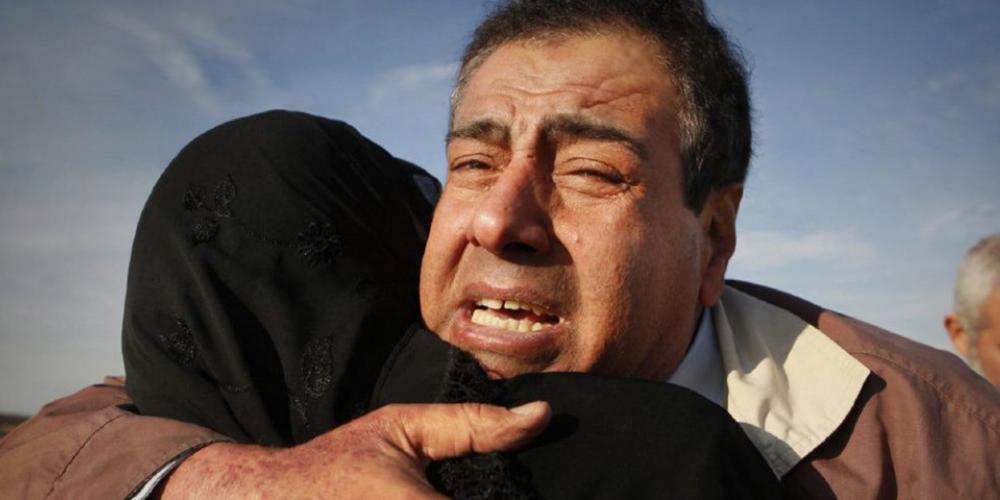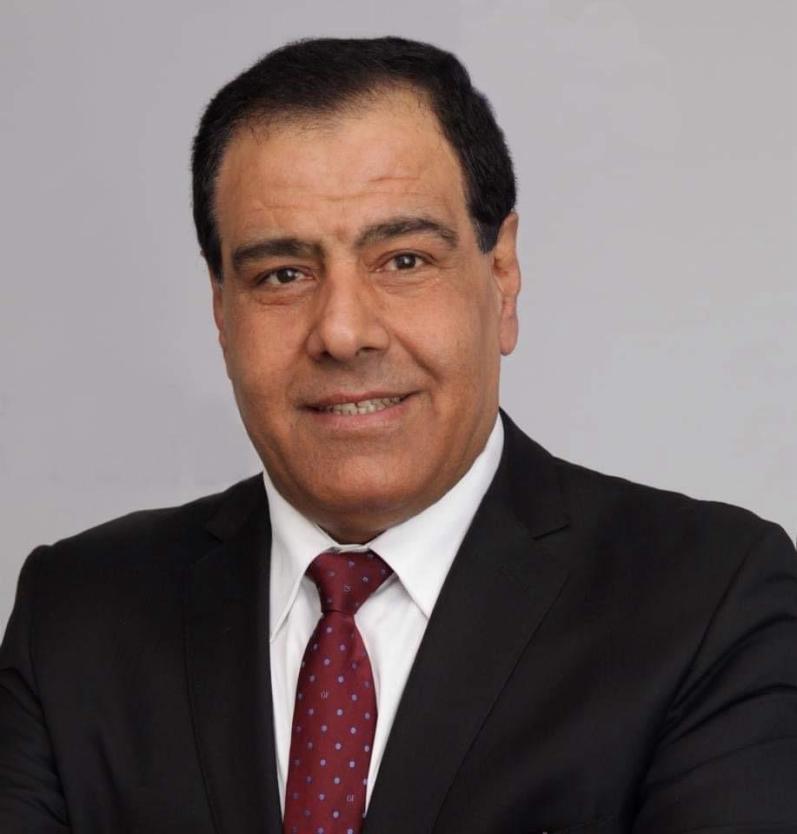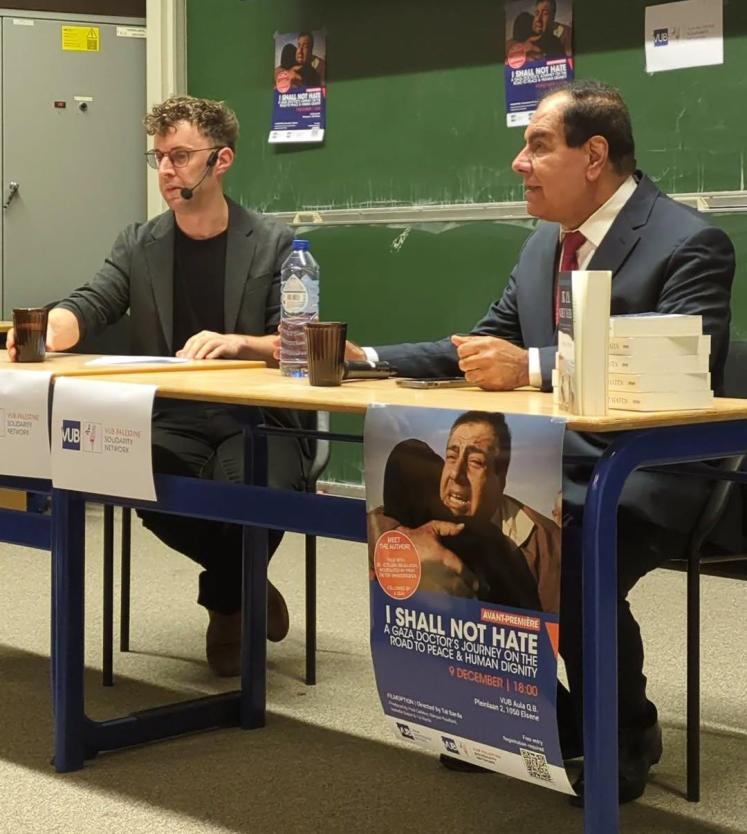
On 9 December, the eve of Human Rights Day, Dr Izzeldin Abuelaish attended the pre-release screening of I Shall Not Hate at the Vrije Universiteit Brussel (VUB). In this film, the Palestinian doctor recounts how he transformed a personal tragedy into a mission for reconciliation, striving for peace and justice for the Palestinian people.
Growing up in the Jabalia refugee camp in Gaza, Izzeldin Abuelaish rose from poverty through education, eventually becoming a gynaecologist specialising in fertility issues. He made history as the first Palestinian doctor to hold a staff position in an Israeli hospital. Over the years, he delivered hundreds of babies, both Palestinian and Israeli.
But tragedy struck on 16 January 2009, when an Israeli tank shell destroyed his home while he was on the phone with an Israeli TV station. His three daughters, Aya, Mayar, and Bessan, as well as his niece, were killed instantly. Overwhelmed with grief, Abuelaish shared the news live on air. Reflecting on that moment, he later admitted he momentarily lost faith in humanity. But his resolve only grew stronger.
He now firmly believes that dialogue and collaboration are the only paths to lasting peace.

Is this your first visit to VUB?
"No, in 2002, I was a fellow at UZ Brussel, specialising in foetal medicine. Later, I had warm contact with former rector Caroline Pauwels — God bless her soul. She was a good friend and a wonderful person. About six years ago, at the invitation of Dieter Vandebroeck, I also gave a lecture for his students.”
That lecture left a lasting impact on the students, according to Professor Vandebroeck. Does retelling your story repeatedly take an emotional toll on you?
"Of course. It is the living and the loving who remain with the pain. But if we want to change the world, we must tell this story. It is not just my personal story — it is a universal human story of hope, courage, justice, and, above all, action. The world is full of violence, hatred, war, racism, fear, and division. It’s time to put an end to it."
Your daughters continue to inspire you. You’ve said they are not gone but simply far away.
"I had hoped they would be the last to die on the path to peace between Palestinians and Israelis. I tell them every day that I haven’t given up, that I am turning this tragedy into positive action for them and for others. It has become my life's mission, and I am determined. If I don't do it, who will? The world belongs to all of us, so it should be everyone's mission to take action. We must all move forward together."
People who hear your story often wonder how they would react in your situation. Many would feel resentment or hatred.
"First of all, I hope no one ever experiences what we went through. Secondly, I believe that nothing is impossible — except bringing my daughters back to me physically. No one’s life follows a straight line. We all face adversity. The key is to see those moments as opportunities. Don’t underestimate people’s potential to rise above hatred."
You’ve studied the concept of hatred in depth.
"Hatred is a contagious disease that destroys the person who harbours it. It eats away at you like a fire, leaving you unable to move forward. Hatred takes root when people are exposed to violence and cruelty at the hands of others. To stop it, we need to remove those triggers and strive for dignity, equality, freedom, and justice."
You often draw parallels with newborns.
"I’ve delivered many babies, and they are all born equal. We should be able to carry that equality beyond the walls of the hospital. But in reality, discrimination based on nationality, ethnicity, colour, and religion begins as soon as they leave. Medicine is the great equaliser. At UZ Brussel, patients are treated according to their condition, not their race or background."
‘Women give and nurture life, they take care of us all’
You believe strongly in the power of education.
"That’s why I founded the Daughters For Life Foundation, in memory of Bessan, Mayar, and Aya. The foundation offers scholarships to girls and young women from Palestine, Israel, Lebanon, Jordan, and Syria, as well as those studying in North America and Europe. Their academic potential is often limited by socio-economic hardships, but they have the ambition to uplift other girls and women in the region. I had discussions with Caroline Pauwels about a potential collaboration with VUB, but her passing interrupted that process. We are now picking it up again with Rector Jan Danckaert."
You argue that sustainable peace in the Middle East is impossible without empowering women.
"I owe everything to my mother, my wife, and my daughters. Women give life, nurture it, and care for us all. Name five women who have caused a catastrophe in this world — you can’t. I want to see women at the decision-making table. Who starts wars? Men. And yet, it is women and children who bear the brunt of decisions they had no part in. Look at the genocide in Gaza: of the more than 45,000 dead, 20% are women and 50% are children."
You sound angry.
"Yes, I am angry, and I have every right to be. But that anger is a positive force that motivates me to act. I am angry, but I do not hate. Hatred cannot be erased with hatred."
What needs to happen in Gaza?
"The international community must intervene, end the violence, halt the occupation, end colonisation and oppression, and ensure freedom, equality, justice, and dignity. We Palestinians do not want to push anyone out or erase anyone. We just want to live freely and independently, side by side with Israel, as stipulated by international law and the Universal Declaration of Human Rights. It is in everyone’s best interest. The impact of wars in Gaza, Ukraine, and elsewhere is felt around the world, even in Brussels. We must act now, as we are standing on the edge of the abyss."
‘Change often comes from young people. They are our hope and future’
What role can a university play in supporting peace for Palestinians?
"Universities can ensure education goes beyond maths and sciences. Students must become socially aware, humanitarian-minded, and well-informed citizens who engage with the world beyond university walls."
What is your view on collaboration with Israeli universities?
"I encourage collaboration, but not with institutions that align themselves with the Israeli government and its atrocities in Gaza. These universities should be pressuring the government to end the bloodshed. Violence only breeds more violence, murder, extremism, and hatred. I’m not calling for a total boycott but for a freeze on collaborations until the war and occupation end. After that, we can work together freely with Israel and the rest of the world."
Do you still have contacts in Israel? What do they say?
"Since 7 October, many people have retreated into a bubble. Even many academics have shifted to the right, supporting the government, which is largely far-right and fanatical. They no longer see the other side. When I ask Israelis if they know what’s happening in Gaza, they say no. I think they don’t want to know."
What do you think of student protest actions?
"It’s good that students look around them, refuse to accept what’s happening, and stand up for peace and a just future. Change often comes from young people. They are our hope and our future."
Staying silent is not an option?
"We must not stay silent. Silence in the face of injustice is itself a form of injustice."

Dieter Vandebroeck (L) with Izzeldin Abuelaish
“A Profound Impact on Students”
The film screening on Monday, 9 December, was organised by the Faculty of Social Sciences and the VUB Palestine Solidarity Network. The Q&A session following the film was moderated by Professor Dieter Vandebroeck from the Department of Sociology, who first met Dr Izzeldin Abuelaish six years ago.
Dieter Vandebroeck: "I had invited him to give a lecture as part of a course on violence for our undergraduate social sciences students. It left a deep and lasting impression on many of them. Several students later told me it was the most memorable part of their entire education. We talked at length afterwards. What struck him most was the dehumanisation of an entire community. No one can put a human face on that experience better than he can. And yet, you realise his story is not unique — it’s a tragedy that has played out thousands of times in that region."
"There is a lot of anger and frustration within our community over this conflict"
According to Professor Vandebroeck, Izzeldin Abuelaish is a shining example for everyone in the VUB community who is committed to the Palestinian cause.
"There is a lot of anger and frustration within our community over this conflict. Sometimes that anger manifests in acts of vandalism and destruction. I understand the emotions behind it. But when you hear someone like Izzeldin, after all he’s been through, passionately yet calmly argue against hatred and for peace and reconciliation, it forces you as an outsider to try and channel your own anger in more constructive ways."